How Had I Never Seen..."Hard Eight"?
 Friday, June 26, 2020 at 9:04AM
Friday, June 26, 2020 at 9:04AM 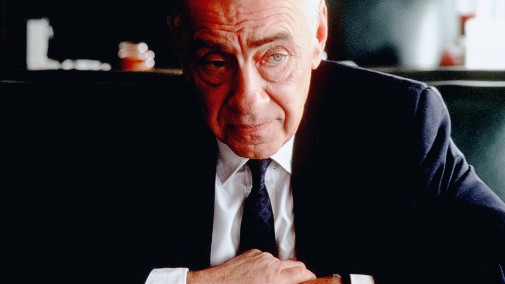
Paul Thomas Anderson turns 50 today, making this a good time to remember how his film career began. Weirdly enough, despite being a longtime fan of the director, I had never seen his first feature, a little indie by the name of Hard Eight, which hit Sundance and Cannes in 1996 but would only get a commercial release the next year. That made 1997 quite the occasion for Anderson. In February, he opened Hard Eight to good reviews and, in October, Boogie Nights made him one of the most critically acclaimed directors of the moment. The latter movie went on to conquer him his first Academy Award nomination, for Best Original Screenplay. What's fascinating and what most surprised me about the pair is how distinct they are, showing two very different sides of their director's craft…
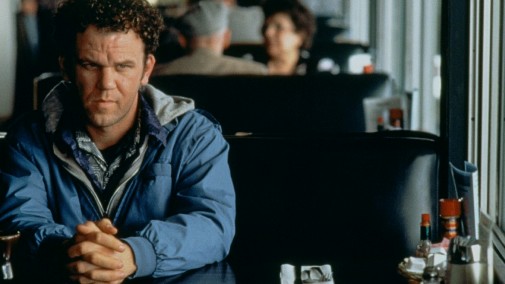
While the '97 drama about the porn industry is a bombastic spectacle, full of high energy performances and formalistic showmanship, Hard Eight is a surprisingly severe affair. Little of Anderson's trademark portentous stylings are evidenced in the film. All in all, it's more akin to a sharp actor-dominated exercise à la The Master, than something like the lunacy of Magnolia and Inherent Vice, the epic viciousness of There Will Be Blood, the poisonous beauty of Phantom Thread or even the color-coded melancholy of Punch-Drunk-Love. That isn't to say that Hard Eight is a film lacking in the visuals department or technical precision. Far from it, in fact.
Set mostly in Reno and Las Vegas, between casinos and the gloominess of cheap diners, Hard Eight was masterfully shot by Anderson's go-to cinematographer Robert Elswit. Far from glamorizing those gambling capitals of America, Elswit's lensing strips the places of their potential glamour, making even the rainbow lights of slot machines look cold, dreary, and deeply uninviting. If possible, the light of day is even more merciless, however, bathing the actors in greyish tonalities that highlight the wear and tear of their grifters' lives.
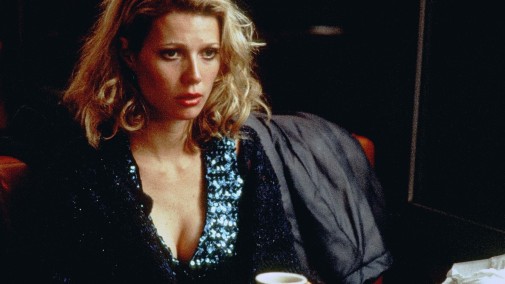
Fittingly, rather than being mainly about the activity of gambling, its intricacies, and tricks, Hard Eight's about the people who gamble, their tired souls, and yearnings. Specifically, it's centered on an elderly man by the name of Sidney (which was the flick's original title), whose atonement for past sins comes in the form of paternal guidance. He befriends John early on, teaches him how to steal from casinos, and make enough money to pay for his mother's funeral. He mentors him and protects him, even from the young man's own stupidity. That becomes apparent when a waitress and part-time prostitute by the name of Clementine enters the picture.
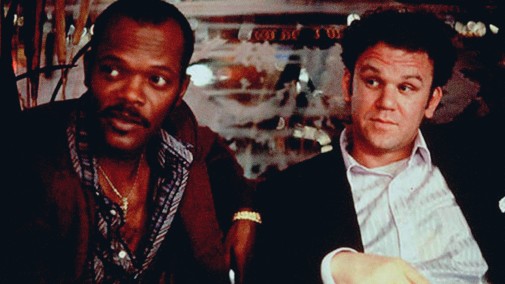
It's essentially a character study of Sidney who's played by Philip Baker Hall with twisted austerity. The actor sometimes seems like a statue that just observes those around him, passively watching the world pass by though there's always a calculating harshness to his eyes. He makes Sidney a resting titan, a man turned frail by time's passage though he's also been hardened by it. He'll shed blood if the need arises, that's for sure. For John, he'll do anything. As for that feckless young man, he's played by John C. Reilly in a tour-de-force of pathetic masculinity, while Samuel L. Jackson gives oily life to Jimmy, one of John's friends and a veritable snake in the grass.
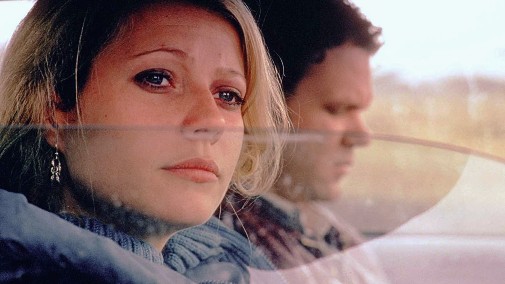
Clementine, on the other hand, is a role that sees Gwyneth Paltrow delivering a remarkably atypical performance. Bruised and resentful, this woman might echo the Femme Fatales of yore, but she's far too exhausted and unsophisticated to truly the archetype. She's a grifter, just like Sidney and John, but one that does her grift with no finesse, little success, and who thinks she's much smarter than she is. It's an amazing take on what could have been a stock character, one that's full of weird specificities but never feels labored. Honestly, Paltrow is so good in this, that I mourn the fact she and Anderson never worked together after Hard Eight.
The actors' work is particularly important because of the way the director chooses to film the characters. He's constantly isolating his performers in careful compositions. There's a sense of loneliness pervading every image of these characters, thie rhumanity defined by how unmoored they are from other people. Even when they are physically close or when the text speaks of great feeling, Anderson's framing imposes a painful separation. Nothing could be more appropriate for a film that, in essence, is the story of two men trying, and failing, to be each other's family.
Considering that it features a narrative of small criminals, murder, and rudimentary Femme Fatales, it's easy to see why many critics compare Hard Eight to film noir. While I can see the comparison and give it merit, the experience of watching the movie reminded me more of Antonioni's cruel poems of alienation. It's unsettlingly bleak portraiture of wrecked humanity, one that refuses to moralize or condescend to its characters but is also unforgiving of them. In this Paul Thomas Anderson's feature, the world is a lonely place and everyone's condemned to wander through it, searching for human connections that are perpetually beyond one's reach.
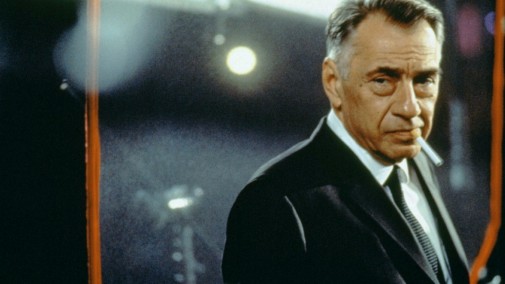
The promising first film of Paul Thomas Anderson is currently available to stream on Amazon Prime Video, Kanopy, Tuby TV, Popcornflix, and Pluto TV. Alternatively, you can also rent it from Apple iTunes, Google Play, Youtube, and others.



Reader Comments (6)
Don't beat yourself up, it had a shitty distribution in Europe. Paltrow is really strong in this.
This was the only movie of Paul's which was taken away from him. He didn't contractually have final cut. The domestic distributor didn't want it. Nor did they care that Anderson's work print edit received admission on the festival circuit. This is Paul's lone Super 35 movie. He disliked for the format for reasons that are entirely unclear to me. I suspect since the studio was able to alter how the widescreen image was extracted it might have defeated the purpose to properly compose for 2.35. Especially when that type of occurrence is impossible with the traditional anamorphic process.
This is a great movie! Philip Baker Hall should have gotten an Oscar nod for it. Gwyneth is fabulous in this too.
I do love this film as it showcases what P.T. Anderson's about though I often call the film by its original title in Sydney.
Under discussed yet a little overrated. Killer ending credits song though.
Hall and Paltrow deserved Oscar nominations.